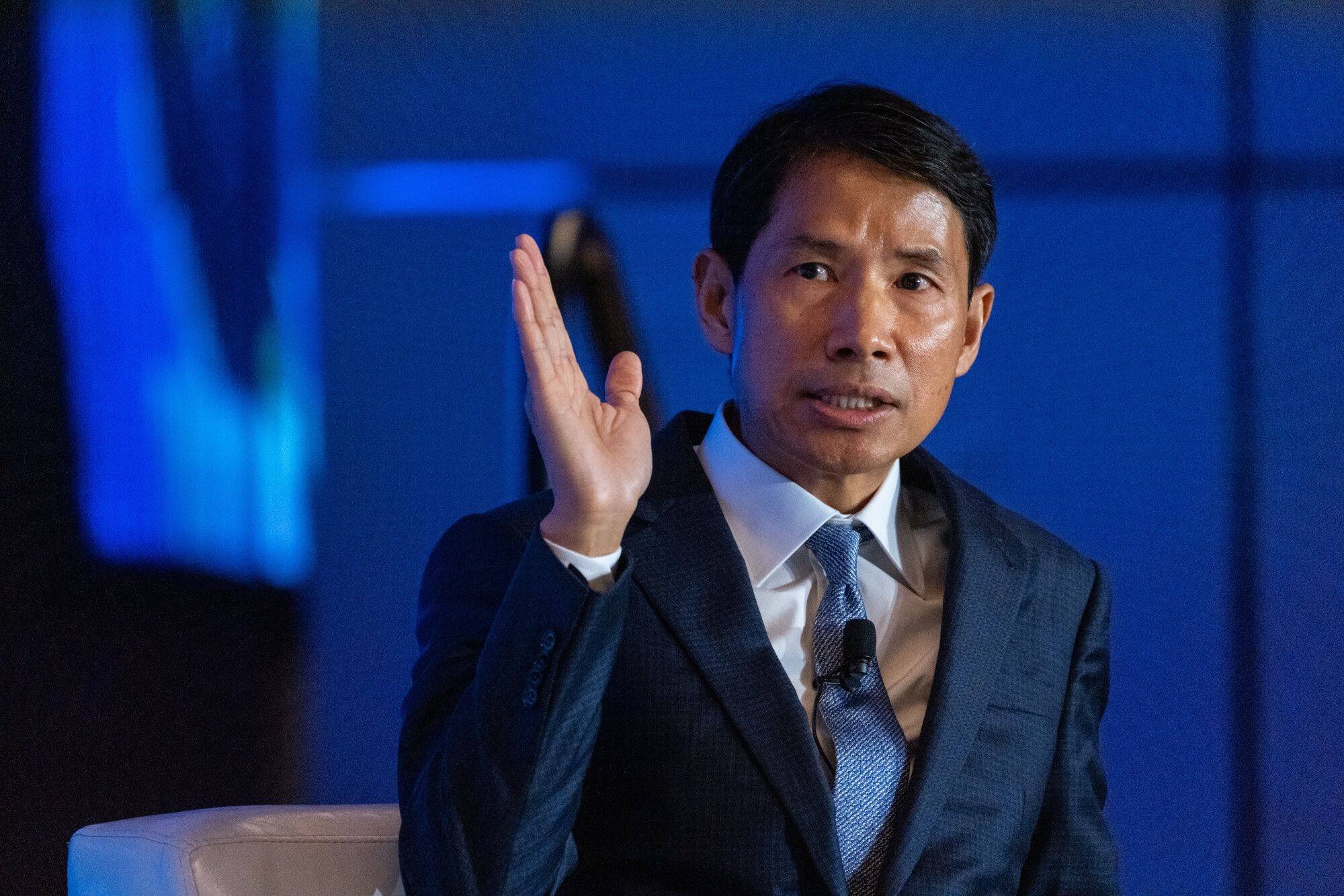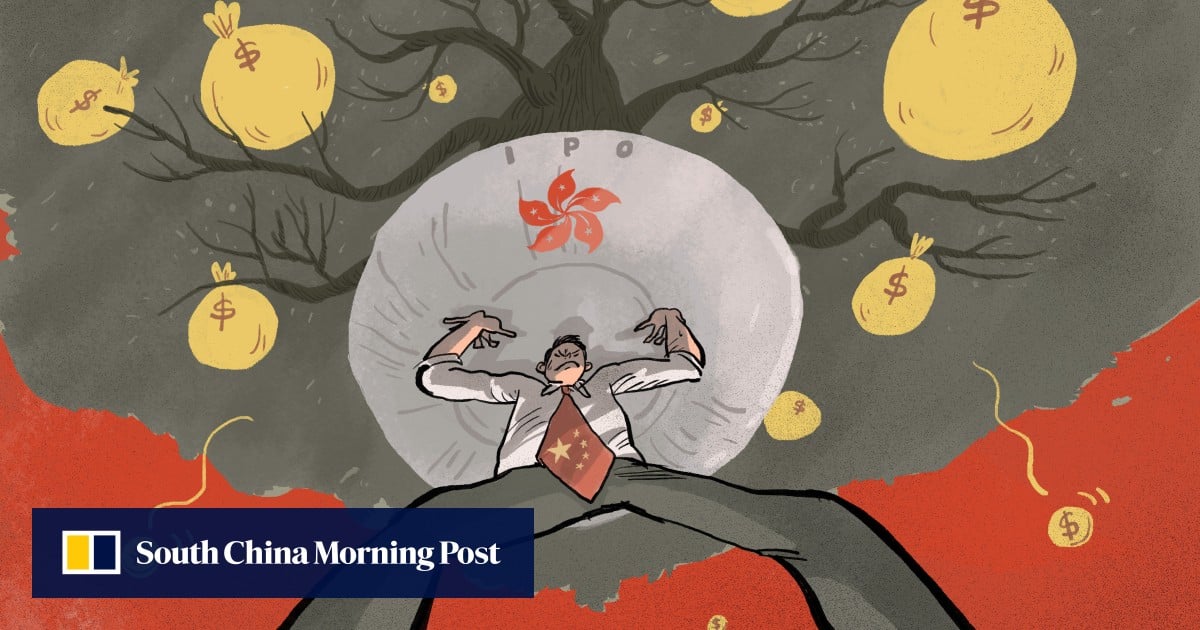Robosense Technology, a maker of lidar systems for autonomous vehicles backed by Alibaba Group Holding, raised HK$985 million from its first-time stock offering in January this year. Nanshan SEI Investment, wholly owned by Shenzhen Nanshan District State-Owned Assets Supervision & Administration Bureau, took up US$100 million or 79.3 per cent of the shares on offer.
In Laekna’s HK$791 million IPO last June, two state-linked firms, Yuyao Yangming Equity Investment Fund and Future Industry Investment Fund II, absorbed three quarters of the shares offered by the Chinese biotech company.
“IPO activities have been slow worldwide, so if there is any investor support, whether anchor or cornerstone, market participants will go ahead [and capitalise on them],” said Nisa Leung, managing partner of Qiming Venture Partners, an early investor in Chinese tech leaders including Xiaomi, Meituan and Bilibili. “Their participation could decline when the market picks up and sentiment improves.”
On average, cornerstone investors soaked up about 27.5 per cent of IPO shares in Hong Kong last year, the highest since at least 2014, according to Dealogic data. Their presence in that period coincided with a crushing four-year slump, prompting big guns like Temasek Holdings, asset managers, pension trusts and sovereign funds to retreat.
Hong Kong’s stock market has shrunk by 36 per cent to US$5 trillion over the past three years, hurt by social unrest, the Covid-19 pandemic, geopolitical tensions, higher interest rates and China’s economic wobbles. The Hang Seng Index lost a cumulative 34 per cent between 2019 and 2023.
Commitment by cornerstone investors is seen as a seal of endorsement that can stir demand from retail investors, according to Raymond Ng, a partner at law firm Harneys. In market downturns, “any guaranteed subscription would help fill the book, thereby enhancing the chance of pushing an IPO over the finish line”, he said.
The presence of local government entities as cornerstone investors in IPOs is being questioned amid market losses. Their role may have backfired as they failed to impress or inspire the broader market, according to Sumeet Singh, head of research for IPOs and placements at Aequitas Research in Hong Kong.
“Generally blue-chip financial investors coming in as cornerstone provides an assurance to other investors as well about the valuation and future prospects of the stock,” he said. “However, the local government-backed entities might have other considerations apart from just financial gains. Hence, their participation doesn’t really send a strong signal for the rest of the market.”
Eight in 10 IPOs since 2021 are currently trading below their offer prices, turning what used to be an easy windfall into a major investment pitfall. The 231 IPOs in Hong Kong since 2021 have inflicted a 43 per cent loss on investors on average, based on data compiled by the Post up to April 18.
J&T Global, which attracted Temasek, Sequoia and Hillhouse Capital as cornerstones, has plunged 36 per cent since its debut. Invesco, Qatar Investment Authority, UBS Asset Management and Neil Shen’s SNP China Enterprises have also suffered as cornerstone investors in biotech firm Wuxi XDC, whose stock has declined 14 per cent.
Private credit funds lure family offices, wealthy individuals as returns sizzle
Private credit funds lure family offices, wealthy individuals as returns sizzle
Returns for Chinese local government entities have been equally rotten. Nanshan SEI has lost about US$11.6 million on its stake in Robosense since the stock debut. Local government-owned asset managers in Shanghai and Tianjin have lost 60 per cent of their IPO bets in Horizon Construction Development.

“For a healthy, functioning capital market like Hong Kong, we need private sector professional investors and institutional investors buying and deciding the credit liquidity,” said Fred Hu, founder and CEO of Primavera Capital, a private equity group. “Government is not a natural investor. They are regulators. China’s future is the private sector.”
Hu is concerned about the over-reliance on cornerstone investors in IPOs, saying it sometimes fails to generate realistic pricing and distorts growth profile of the issuers.
As market conditions have been volatile, and with Hong Kong stocks underperforming global markets, the cornerstone process is something that will give issuers a higher degree of certainty in the IPO success, said John Lee, vice-chairman and co-head of Asia in Hong Kong at UBS Group.
“With the market being more challenging, cornerstone investors are now more selective with the deals they want to invest in,” he added.
Hong Kong bankers on ‘survival mode’ as IPO drought ends windfalls
Hong Kong bankers on ‘survival mode’ as IPO drought ends windfalls
The role of local government entities as cornerstone investors will strengthen the ties between the companies and the local authorities where they operate, Lee said. The arrangements are in line with policies that encourage them to focus on strategically important sectors, such as healthcare and electric-vehicle manufacturing, he added.
This sentiment is shared by UBTech, China’s biggest manufacturer of educational and humanoid robots. Its HK$1 billion IPO in December attracted E-Town International, an entity ultimately owned by the Financial Audit Bureau of Beijing Economic-Technological Development Area, as a key investor with 53 per cent of the IPO shares.
“When we choose strategic partners, we hope they have long-term investment patience and vision,” said Michael Tam, chief brand officer at UBTech. E-Town, which operates a hub for advanced manufacturing, can provide “great synergy,” he said.
It’s not for the lack of trying. UBTech had engaged with many global investors in the run-up to its IPO launch. Many engagements with potential cornerstone investors did not materialise, possibly because the market conditions at the time affected their willingness to invest, Tam said.
As China’s debt risks mount, the spectre of looming local crises rears its head
As China’s debt risks mount, the spectre of looming local crises rears its head
About a fifth of all the new offerings that introduced local government cornerstone investors during the past year were undersubscribed, according to Phillip Securities. Robosense only managed to sell 58 per cent of the portion allocated to local retail investors, according to its filing.
“The traditional big-name cornerstone investors like Temasek used to be a no-brainer; retail investors would just go ahead and participate,” said George Au, deputy sales director at Phillip Securities. Chinese local government-related entities just do not have the same force or pull factor, he added.
Chinese local government investment vehicles may suffer from poor publicity, with some facing dire refinancing pressure. They could be the weakest link, or the source of market fissures, if a third wave of defaults ensues under high financing costs and tighter regulations, according to S&P Global Ratings.
Brace for ‘third wave’ of China bond defaults on financing costs, tighter policies: S&P
Brace for ‘third wave’ of China bond defaults on financing costs, tighter policies: S&P
“China has a lot of local government debt, why not clear all that first?,” Hu of Primavera Capital said. “If private investors do not come in for IPO stakes and government investors step forward, that is not [going to be] sustainable.”
What Hong Kong’s IPO market really needs is a large dose of confidence among big institutional private investors. That lack of confidence was on display this week when bubble-tea chain group Sichuan Baicha Baidao Industrial Co – the city’s biggest IPO of the year thus far – failed spectacularly on its trading debut.
Chinese bubble-tea maker’s IPO hopes pop in biggest letdown in 6 years
Chinese bubble-tea maker’s IPO hopes pop in biggest letdown in 6 years
The city could host 80 IPOs this year with estimated proceeds of HK$100 billion, according to a forecast by Deloitte China. Stronger measures taken by Beijing to recharge the mainland economy, and possible interest-rate cuts in the US later this year, are supporting factors, it added.
It may still boil down to the fundamentals, Primavera Capital’s Hu said.
“We need to make sure the quality of the company, the governance, the business model, the financial profile and the pricing are all attractive as a package,” he said. “You do not need cornerstone [investors]. Global investors, fund managers and retail investors would be enough.”

